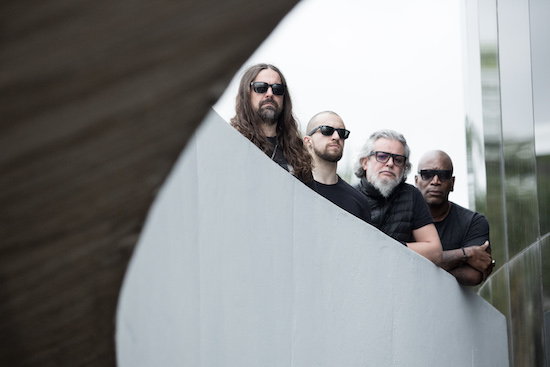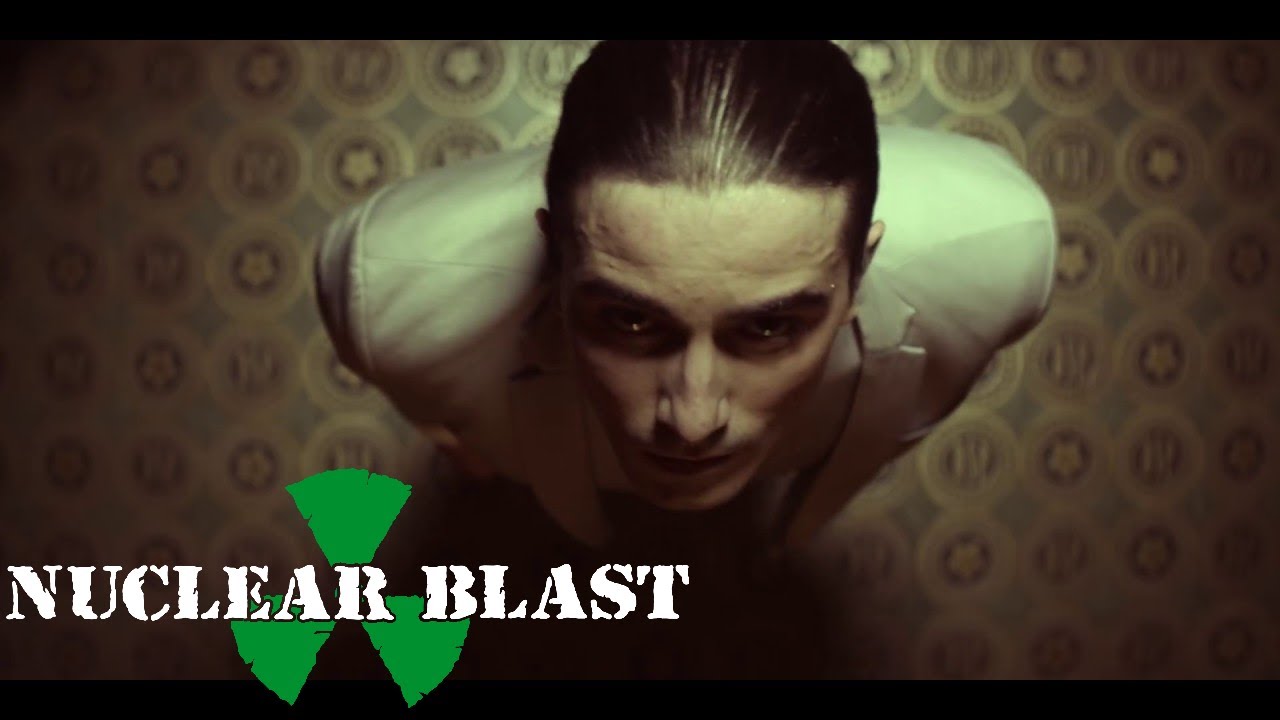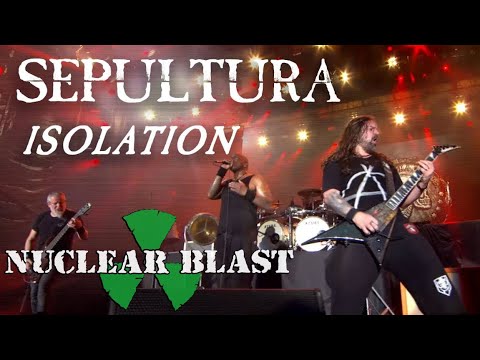Photo credit: Marcos Hermes
The modern Sepultura, having shed the idiosyncrasies of the Cavelera brothers, aim to overwhelm. Laying a foundation of relentless groove and staccato vocal delivery they tap into their rich history by adding more complicated elements, and develop how these new sounds contribute to the shape and momentum of the groove. But they shoot further than their familiar thrash trappings, aiming for – and falling far short of – something that could genuinely be called maximalist.
When metal goes big it leans towards live spectacle, awe-inspiring pyrotechnics, deafening volume, Judas Priest being borne aloft by malicious robots in a thunderously gaudy am-dram or Sunn O))) separating soul from body. This is certainly dramatic. But traditionally, maximalism in pop music is more clearly identifiable as overwhelming compositionally, having the vision to present something labyrinthine and mercurial; more bewildering than awesome.
Complex composers and tinkerers such as Devin Townsend and Chuck Schuldiner do bear some trace of, say, the vision of Frank Zappa or Kanye West. Indeed, some of the earlier Sepultura work can be counted here, fusing Brazilian percussion with the ferocious bombast of thrash metal to produce something kinetic and textured.
With the departure of the Caveleras, they’ve been left a little adrift. It’s understandable, then, that they’d want to aim high, hence recent records themed around great works of film and literature, all lacking the vision and personality of their erstwhile bandleaders. But there are a few moments here, and a few key ideas, that elevate this record, and cushion the crash somewhat.
Sepultura have been seeking a new identity since shedding two of the biggest personalities in the genre. They approach this in two ways: they add more elements, some acoustic drums and guitars, building to shrill choral sections. But then, working from their long tradition of layering in extra percussion, they focus on the rhythms. These are etched out in quiet acoustic instruments or featured as a pulse in a choir, and then transposed to the drums, where the whole track morphs and weaves around it. It’s a smart way of fusing parts that would otherwise work in contrast to one another. It seems abstract and obscure, but in practise the grooves are built from something curious into a full-throated rampage.
Where these ideas work, the energy and bounce of the record is conveyed not just to add texture and swing to the tracks, but to mess with the listener’s perception of rhythm, to add nuance and produce a joyful kinetic energy. For all the pomp about concepts and anti-capitalism, the record’s best work is when it captures a celebratory spirit. Plus, this brings out the best of the genre, recalling the barely-controlled Dave Lombardo’s more outrageous stuff, or some of modern master Brann Dailor’s tom cascades.
The rhythm section is the clear star here; the drum kit, sounding tighter and more polished than ever, is the clear link between blistering thrash metal and their tribal and choral elements. Historically, leaning on groove was the thing that made them stand out on Chaos AD and their heavy use of extra percussion contributed to their success on Roots Bloody Roots. Relative newcomer Eloy Casagrande is athletic and precise, staying true to the essential flavours and nuances that made Sepultura so engaging in the first place. This is a genuine triumph of ambitious metal drum arrangement, less refined than Cynic or Death but with more heart and bounce.
The failure comes when the new elements are simply disjointed sections; they’re reduced to an irritating buffer that distracts from the fun bits. It’s not the wildest thing in the world to write a heavy song that features gregorian chanting, or power electronics, or canons. To build these ideas into something coherent is harder, and carries heavier risk. There are too many occasions where extraneous elements are just part of the decorations; when this crops up, it’s all too obvious that Quadra is using the maximalist tradition to affect maturity.
This is the glaring flaw of the record, but aside from this it’s a little one-note. It capitalises on the one idea that works, until the softer sections surface and they simply don’t have the power to keep going. When the record fizzles out, it’s clear that their one trick was doing a lot of legwork.
But what we’re left with, in the main, is a metal record which bears the trace of Sepultura’s greatness, compelling when the elements fall into place. Their naked ambition is admirable if undeveloped, and the best of the end result is earnest, hearty thrash, a kinetic record with treasures for the close listeners, and thrilling chaotic energy for everyone else.




